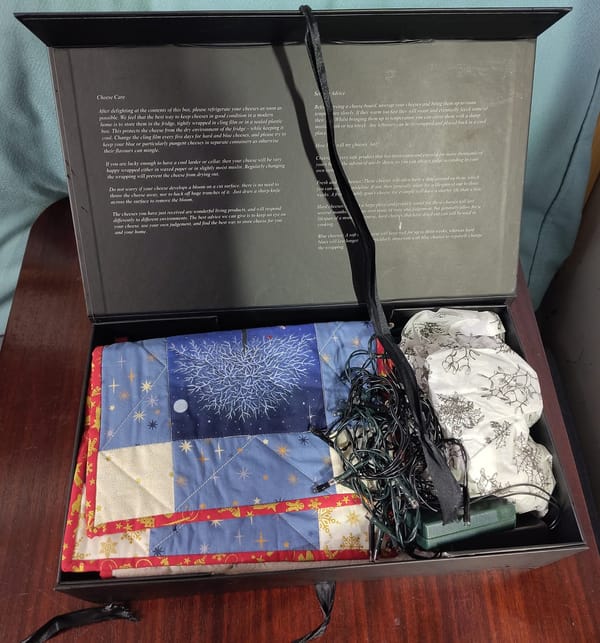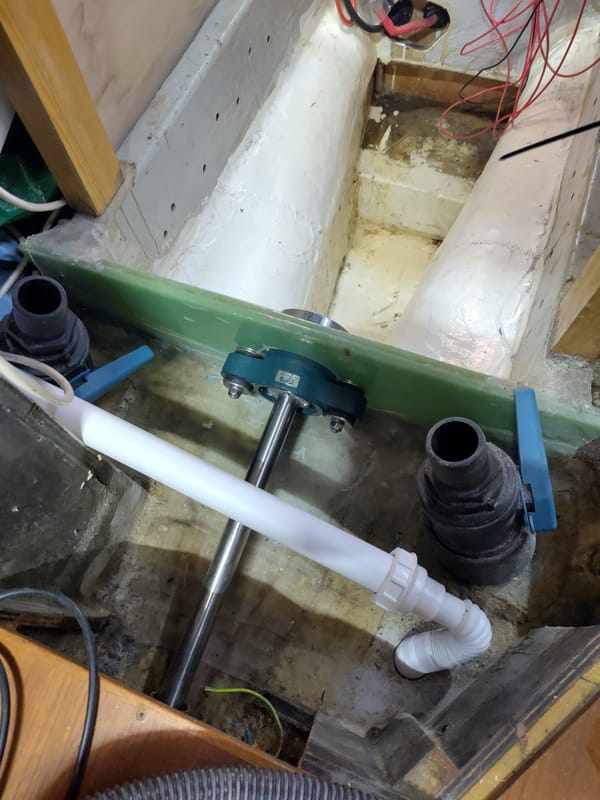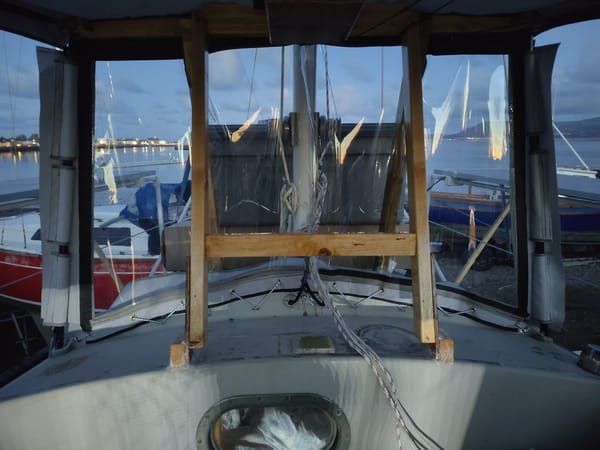22 months to go: Thinking about next steps
At the end of July 2025 we will move our home onto Vida full-time, just 22 months to go! My appointment as a Methodist Minister in Wythenshawe, Manchester will finish and hence we have to move out of the house we are currently living in. So at 60 years old I will be taking time out from full-time work as a Methodist Minister, initially for 5 years, possibly extending into retirement. The intention is for that move to pave the way for a far more Sustainable life for us that will include sailing around-about the world.
There is still a huge amount of work still required to get Vida ready and we still have to fit that in around the challenges and constraints of the rest of our lives. At the same time there is the fitting everything together that is needed to support the change, that includes practical elements such finances and decluttering but more importantly how this fits with who we are and who we want to be.
One aspect of the "how this fits in" that we haven't talked about much is how everything is connected with our Christian faith. One reason we haven't talked about this much is that we don't believe that Christian faith is essential to wanting to live sustainably. Many of the leaders in sustainability have no religious faith and many would argue that faith has a negative influence. Indeed, we agree that there are many Christians who are not focused on sustainability (including Climate Emergency deniers). In our lives a big frustration has been the brake on reducing our own carbon footprint caused by living in a series of inefficient houses provided by the Church that we have had little control over.
So we haven't talked about our faith much as the motivation for what we are trying to do because we are not trying to convert people interested in Sustainability to be Christians (although we would be delighted if we could convert more Christians to be more interested in sustainability). Instead we have been focused more straightforwardly on sustainability and how sailing can be less destructive and more positive as a way of life.
As the countdown ticks down and the reality of the changes hit home we think this might change a little. At present there is a pattern and practice of faith and sustainability that is clearly (to me at least) embedded in my current role. Here the practice of faith includes leading public worship etc and the sustainability is frequently about supporting communities and people through crises such as destitution, health while challenging injustice and poverty.
Many of the choices we make relating to Sustainable Sailing have already been influenced by the places we have been sent to by the Methodist Church and the people we have met there (5 years in rural Northamptonshire, 8 years in Leicester and what will be 7 years in Wythenshawe, Manchester). Obviously it impacts our finances, what we can afford to spend and what we will have to live on. More than that there has to be a fit between the community here and our dreams. We feel that we couldn't live and work here with integrity if we were planning to abandon this community for a future of luxury on a fancy new yacht, or a lifestyle built on foundations of injustice and inequality.
Clearly, the pattern of faith and sustainability will be different when we are living on a boat and sailing to different places. No doubt we will do and share some of the working that out online. One think we know is that when cruising we will be looking for Christian communities to meet and worship with. Maybe we will find a niche where we rate anchorages by the ease of getting to Sunday worship ;-)
One exciting connection at the moment is that the Methodist Church has recently launched a "Walking with Micah" project asking:
What does it mean for the Methodist Church to be a justice-seeking church?
We live at a time of huge change when domestic and global injustices are being revealed and intensified. How can our world be renewed so that all God’s creation, people and planet, can flourish?
Walking with Micah
Micah is the biblical prophet, who wrote one of my favourite texts in the Hebrew Scriptures (Micah 6:8):
And what does the Lord require of you?
To act justly and to love mercy
and to walk humbly with your God.
The Methodist Church, in it's own methodical way, has summarised this project into a three minute read and I look forward to exploring how our personal journey into Sustainable Sailing for our retirement fits with this:
Principles of justice
Six Principles for justice underpin our understanding of God’s justice and what it means to seek justice:
- God made humans in the image of God, each worthy of equal value and dignity. The search for justice entails treating others with respect, and may involve reclaiming lost worth.
- God desires the flourishing of creation and human community within it. The search for justice does not diminish or limit the flourishing of others but seeks to enable it.
- God consistently shows a bias to people experiencing poverty and those who are excluded. The search for justice must prioritise people who live in poverty or people who are marginalised in other ways.
- God entrusts those in power with a special responsibility for upholding justice. Those seeking justice will encourage and challenge those with power to fulfil their vocation.
- God calls all people and nations actively to work for peace and justice, liberation and transformation. It is never just someone else’s responsibility. We all have a part to play.
- God calls us to live in hope and in ways that reflect God’s character and the pattern of God’s kingdom. So, seeking justice involves honesty and truth, and may demand protest and resistance, restitution, forgiveness, reconciliation and ultimately transformation.
These Principles help us talk about our understanding of God’s justice and are a tool to help us in our discussing, discernment and action.
Priorities for justice
These five key Priorities for justice, which were agreed after a time of listening and reflection, focus our efforts and our resources to support local churches in their worship and action.
- Tackling inequality and poverty: seeking life in all its fullness
- Enabling a flourishing environment: right relationship between people, planet and God
- Seeking justice for refugees: one people, one world
- Opposing discrimination: all are made in the image of God
- Pursuing peace: seeking justice and reconciliation
Methodists have the opportunity to make a difference.
Through campaigning, being with those experiencing injustice and offering support, building relationships, or striving to tell a different story of a just world, churches will be able to engage with Priorities that are most relevant in their context – through existing involvement or through actions that reflects their gifts.
Practices for justice
The Practices for justice challenge people to consider both our ways of doing justice and our ways of being just, and how they can be consistent with each other.
- Our ways of doing justice involve bringing about change in the systems that hold problems in place. Beyond short term practical help, this can include action to change structures, to build relationships, and to transform understanding.
- Our ways of being just enable us to be ‘at our best’ when seeking justice. They enable sustainable, transformative and rooted action for justice to develop in churches and communities, and keep our actions grounded in and guided by our faith.
Using these Practices helps us to examine our current and planned justice activities, making sure that they contribute to change and are consistent with our beliefs about God’s justice.




